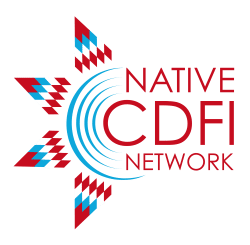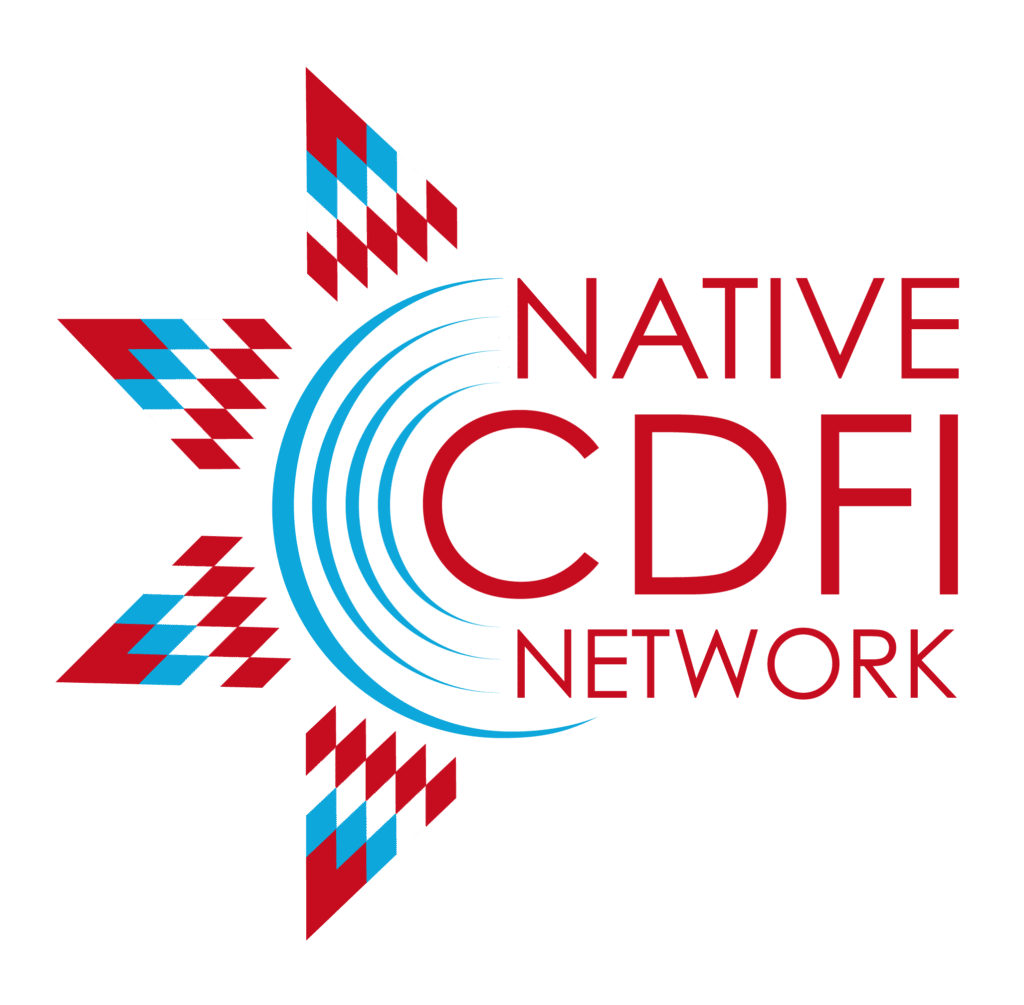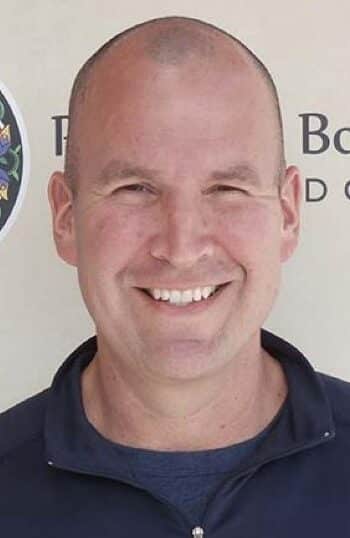
An enrolled citizen of the Pokagon Band of Potawatomi, Sean previously served for one year as Sales Coordinator for the Pokagon Band’s Four Winds Casino Resort. In addition to his current role with Chi Ishobak, Sean serves as Vice Chair of the Board of Directors of Mno-Bmadsen, Pokagon’s economic development corporation, which is responsible for generating non-gaming revenue for the Band.
In this engaging conversation with NCN, Sean shares how Chi Ishobak empowers its clients in accordance with Pokagon Potawatomi’s core values, and the benefits of partnering with other Native CDFIs to ensure all Native people who need the support Native CDFIs provide can be served.
NCN: Greetings Sean, it’s good to have you with us today. Welcome.
Winters: Awesome to be here. Thanks for the opportunity to speak with you.
NCN: Why do you do what you do? How did leading Chi Ishobak become your life’s calling?
Winters: It really fell into my lap. I was a PGA golf professional for 18 years. My family and I were talking about our next steps. The golf business is very hard to do, so we decided in 2010 to come back home. I worked for our casino briefly in sales and marketing, and then an opportunity came about with Chi Ishobak as a loan officer. I had never heard of Chi Ishobak or CDFIs or mission-driven lending. I had run a small business, but I didn’t know anything about the finance world. So I did some pros and cons with my wife and family, and I started with Chi Ishobak in November 2011. Two months later, our board decided to get rid of our executive director. I was now a lowly staff of one with no industry knowledge, no idea what the heck I was doing, and I started pondering my decision. That was at about 9:00 in the morning and I remember sitting at my desk with a blank computer screen all day long thinking, “Well, what are we going to do?” I remember my grandma always saying, “You get one day to feel sorry for yourself and then you put your pants on and go out and get the work done.
So the next day I started making phone calls to other Native CDFI leaders, and I still maintain those relationships. They were very helpful. We closed our first loans in March 2012 and I was fortunate to receive the executive director position in September 2012. If you would have told me twelve years ago, “Hey, here’s what you’re going to be doing,” I would have said, “You’re crazy.” But I am so happy to be here. This is the most fulfilling work I’ve ever done. Compensation aside, being a tribal citizen and getting to see the impact we make on tribal citizens and their families, that’s the rush I get out of all of this.
NCN: As you know, there are more than 70 federally certified Native CDFIs across the country and many more “emerging” CDFIs following in their footsteps. Why did Native communities feel it necessary to create CDFIs, and what fundamental role do they play?
“What Chi Ishobak offers is a modern-day gift…It’s not owed to you. It’s something that’s earned and shouldn’t be taken lightly. We’re empowering our people, but we’re doing it the right way. We hold our clients accountable, but we also let them know they have value, and they have our support.”
Winters: The glaring rationale across the board is access to capital. You hear everybody, whether it be government agencies, large banks, or philanthropic endeavors talking about really wanting to be a part of Indian Country. But a lot of times you find once you sit down with those folks and try to find an actual strategy for what they can do, you realize it’s just talk. We’re past the talking point from a CDFI standpoint and we’re making things happen, whether it be commercially or from a consumer standpoint. We can show the quantitative data and the qualitative data that Indian Country does need this level of assistance and that we’re getting it done. But we’re still just scratching the surface when you think about the relatively small number of Native CDFIs across the country with as many tribes as we have. The more eyes we can open through education and relationship building, the more we will get past the talking phase and bring us to mutually beneficial solutions.
NCN: What do policymakers, philanthropy, and the general public who aren’t familiar with Native CDFIs need to understand about them and the difference they make?
Winters: I remember going several years ago to an OFN [Opportunity Finance Network] meeting in Chicago with maybe 40 or 50 CDFIs present and I was the only Native CDFI. When we started doing group activities, not one loan officer, executive director, or CEO had ever even heard of a Native CDFI. That really surprised me because I was still kind of young in the industry. The education is so important. We often aim high by educating our federal policymakers, but sometimes I think we need to start lower, at the state level for example. We have the information and the stories we need to share to demonstrate the need and how Native CDFIs are meeting that need. But where’s the best place to start? How do we reach more folks to share that introduction to Native CDFIs, if you will?
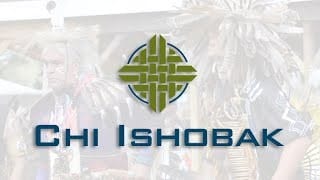
Winters: My entire life as a tribal citizen myself, I grew up knowing what the stereotypes were about our people. You could either get offended by those or you could use them as fuel. I chose the latter. I’ve always held myself to a higher standard, whether it be in academics, athletics, or just trying to be a good person. Then, as I learned more about our culture and the seven grandfather teachings, the seven generations, and how we got here, I thought, we can’t just offer handouts that enable and entitle our citizens. That doesn’t do anything. I’ve never seen an example of somebody getting something for free who’s truly built something positive. So with that vision, I wanted to make sure Chi Ishobak was being responsible. I wanted to create accountability. We’re not doing this just because of who you are. For centuries, our ancestors did a lot of different things that allowed us to be here today. They respected and truly cared for Mother Earth, the Creator, and everything that was put here was celebrated. Nothing went to waste. You only took as much as you needed in everything you did, and there was homage paid to that. Times have changed, but we still have that cultural obligation to do what’s right by our beliefs and how we’re allowed to be here and why we’re here. Most people don’t think about it this way, but what Chi Ishobak offers is a modern-day gift. It really is. It’s not owed to you. It’s something that’s earned and shouldn’t be taken lightly. We’re empowering our people, but we’re doing it the right way. We hold our clients accountable, but we also let them know they have value, and they have our support. They understand that and they work hard to be an example for our community, but more importantly, for their families.
NCN: Recently, Chi Ishobak partnered with another certified Native CDFI, the Citizen Potawatomi Community Development Corporation in Oklahoma. What does that partnership consist of and how is it mutually beneficial?
Winters: We have a lot of great colleagues in our industry, but we really identified with Citizen Potawatomi from the get-go because we have similarities, including in our locations, who we serve and where, and the resources we have around us. They have been fantastic in sharing policies and best practices with us. In talking with them, we also identified two lending opportunities where we could partner. One involved a client of ours, a commercial flooring company that was doing some fantastic things. We had given them a revolving line of credit to help them grow, and they had reached the point where they wanted to purchase the building they had been renting. It was something we wanted to do, but we didn’t have the capacity at the time to do it, so we talked with Cindy Logsdon at Citizen Potawatomi and she said, “Oh, we can do this,” and they helped these folks get ownership of their building. After 18 months or so, as we got more comfortable from a loan capital standpoint, we were able to purchase the loan back from them.
The second involved a Citizen Potawatomi citizen that lives in South Bend, Indiana. Cindy came to us and said, “Hey, this gentleman needs help.” So we did a small participation loan with him to help him get an automobile, and he continues to be one of our best customers. Citizen Potawatomi would not have been able to help this individual without us collaborating.
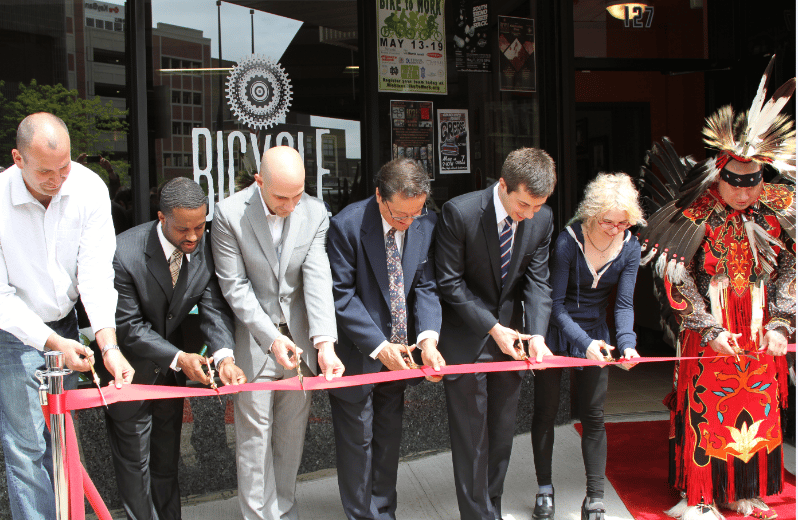
NCN: Chi Ishobak has helped a great number of people. Is there an individual client success story that really sticks out to you, that really inspires you?
Winters: We had one citizen come in seeking help with his finances. We pulled his credit report and looked at his finances. He was making plenty of money. But he didn’t have anything to show for it, and he was putting $250 a month on credit cards just for bills. We had him list every single thing he spent his money on, and we quickly found that he just liked to spend money. So we created an allocated spending plan for him so he could track where every cent goes and when it goes, and also when he’s able to spend and when he’s not. We were there side by side with him holding his hand, helping him create this new habit. Well, within seven months, he paid off $15,000 in credit card debt and $7,000 he still owed on his truck. He also had saved about $3,000. We cut up 16 of his credit cards and put them in a jar and we still have that in our office. When you find balance, it can be financial balance, it can be spiritual, it can be physical. When he found his financial balance, all of a sudden, within a few months, he lost 70 pounds. He participates in our traditional drumming. For a while, he was going to powwows to win money in these competitions and he was playing poorly. Since he found his balance, he now goes to powwows just because he loves to participate, and he started placing and winning money. His relationships across the board – with his parents, his children, his wife – also got better. All of these things happened because he was now in charge of his financial world. That’s probably the coolest moment I’ve witnessed in this industry. And it wasn’t a loan. It was just somebody that we pointed in the right direction. We helped to show him what his worth is – not just his financial worth, but his personal worth. We celebrate him as a true example of what everybody’s capable of and what’s possible.
NCN: From your perspective, what do Native CDFIs like yours need to realize their full potential? What support do they need to achieve their missions and maximize their impact?
Winters: I don’t think it’s necessarily just one thing. It’s easy to say, “Hey, more capital.” It’s easy to say, “Yeah, we’ve got our Native set-aside. Fantastic.” We’ve made some fantastic strides, but I would really like to see more opportunities for Native CDFIs, and I don’t just mean grants or awards. We also need to try new approaches so we don’t keep hitting our heads against the same walls. We’re always challenging ourselves. Chi Ishobak just did an internal strategic planning process to refresh our organization’s direction and consider new services and loan products. That’s also why talking with other Native CDFI leaders is so important. If I talk to Pete Upton, Cindy Logsdon, or Jeff Johnson, there are core things we all do, and those things are fantastic. But because of their locations, markets, and just their individual organizations, maybe there are a couple of outlier things they do but not everybody does. So now I can ask, “Would that work here?” And maybe something we do somebody else might get to use. The Native CDFI industry is such a tight community. Everybody will share information. Everybody wants to see everybody else do great things because we’re all family and we’re all working for the same goal. We have to keep our eyes and ears open and be willing to evolve, grow, change, and adapt, and everybody’s done a fantastic job of that in the last two years.
To learn more about Chi Ishobak, please click here.
